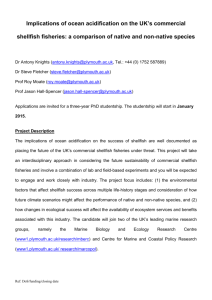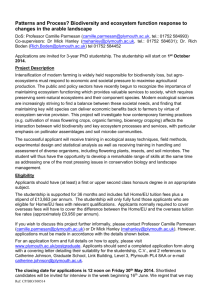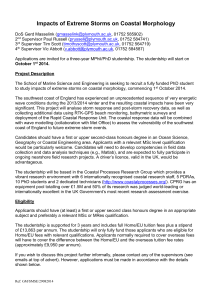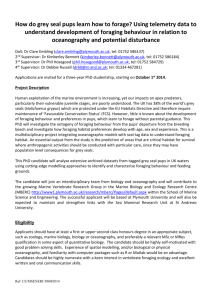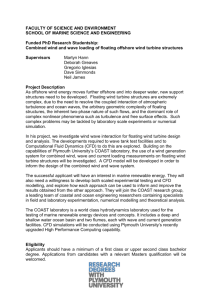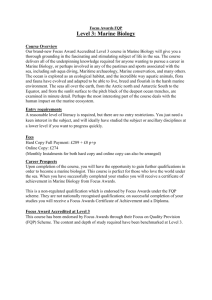NERC Funded Ph
advertisement
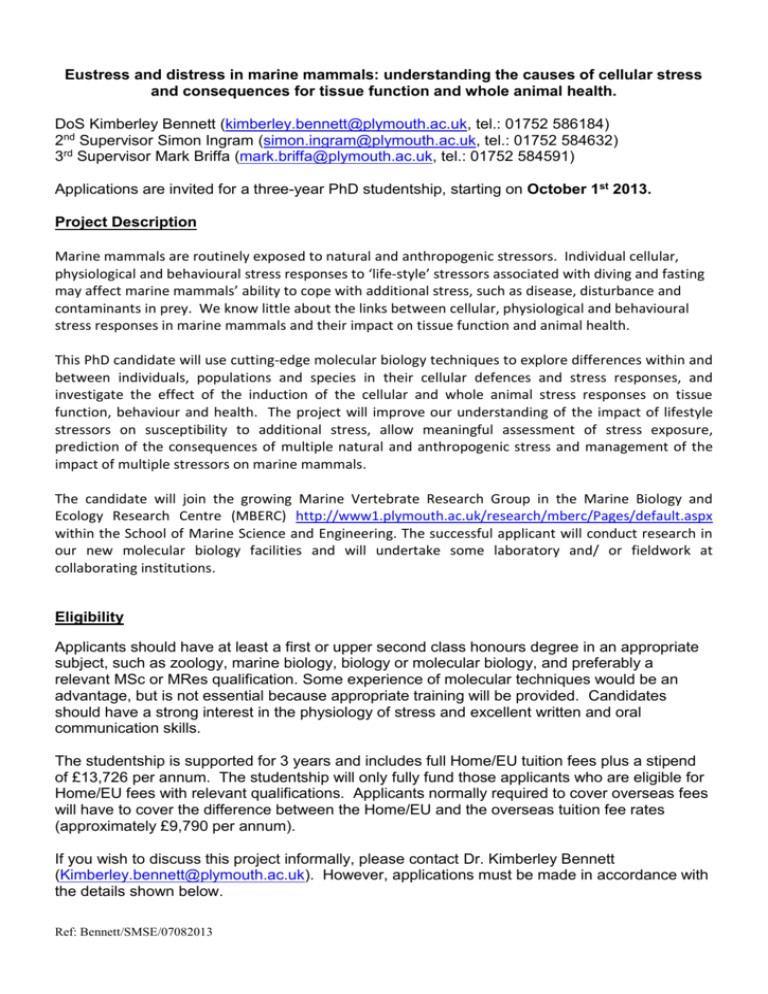
Eustress and distress in marine mammals: understanding the causes of cellular stress and consequences for tissue function and whole animal health. DoS Kimberley Bennett (kimberley.bennett@plymouth.ac.uk, tel.: 01752 586184) 2nd Supervisor Simon Ingram (simon.ingram@plymouth.ac.uk, tel.: 01752 584632) 3rd Supervisor Mark Briffa (mark.briffa@plymouth.ac.uk, tel.: 01752 584591) Applications are invited for a three-year PhD studentship, starting on October 1st 2013. Project Description Marine mammals are routinely exposed to natural and anthropogenic stressors. Individual cellular, physiological and behavioural stress responses to ‘life-style’ stressors associated with diving and fasting may affect marine mammals’ ability to cope with additional stress, such as disease, disturbance and contaminants in prey. We know little about the links between cellular, physiological and behavioural stress responses in marine mammals and their impact on tissue function and animal health. This PhD candidate will use cutting-edge molecular biology techniques to explore differences within and between individuals, populations and species in their cellular defences and stress responses, and investigate the effect of the induction of the cellular and whole animal stress responses on tissue function, behaviour and health. The project will improve our understanding of the impact of lifestyle stressors on susceptibility to additional stress, allow meaningful assessment of stress exposure, prediction of the consequences of multiple natural and anthropogenic stress and management of the impact of multiple stressors on marine mammals. The candidate will join the growing Marine Vertebrate Research Group in the Marine Biology and Ecology Research Centre (MBERC) http://www1.plymouth.ac.uk/research/mberc/Pages/default.aspx within the School of Marine Science and Engineering. The successful applicant will conduct research in our new molecular biology facilities and will undertake some laboratory and/ or fieldwork at collaborating institutions. Eligibility Applicants should have at least a first or upper second class honours degree in an appropriate subject, such as zoology, marine biology, biology or molecular biology, and preferably a relevant MSc or MRes qualification. Some experience of molecular techniques would be an advantage, but is not essential because appropriate training will be provided. Candidates should have a strong interest in the physiology of stress and excellent written and oral communication skills. The studentship is supported for 3 years and includes full Home/EU tuition fees plus a stipend of £13,726 per annum. The studentship will only fully fund those applicants who are eligible for Home/EU fees with relevant qualifications. Applicants normally required to cover overseas fees will have to cover the difference between the Home/EU and the overseas tuition fee rates (approximately £9,790 per annum). If you wish to discuss this project informally, please contact Dr. Kimberley Bennett (Kimberley.bennett@plymouth.ac.uk). However, applications must be made in accordance with the details shown below. Ref: Bennett/SMSE/07082013 For an application form and full details on how to apply, please visit www.plymouth.ac.uk/postgraduate. Applicants should send a completed application form along with a covering letter detailing their suitability for the studentship, C.V., and 2 references to Francesca Niedzielski, Faculty of Science and Technology Research Office, Room A425, Portland Square, Plymouth PL4 8AA or e-mail scitechresearch@plymouth.ac.uk. The closing date for applications is 12 noon on 7th August 2013. Shortlisted candidates will be invited for interview in the last week of August 2013. We regret that we may not be able to respond to all applications. Applicants who have not received an offer of a place by midSeptember should consider their application has been unsuccessful on this occasion. Ref: Bennett/SMSE/07082013
